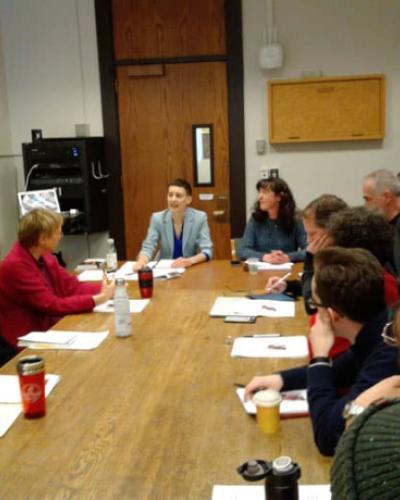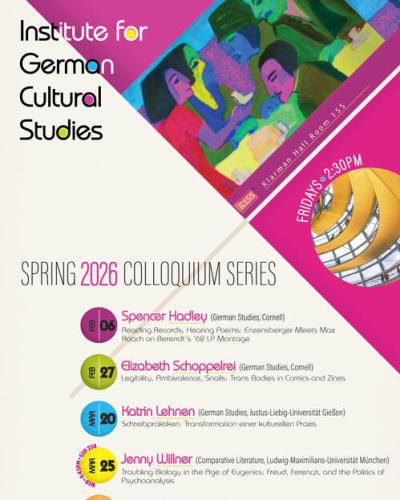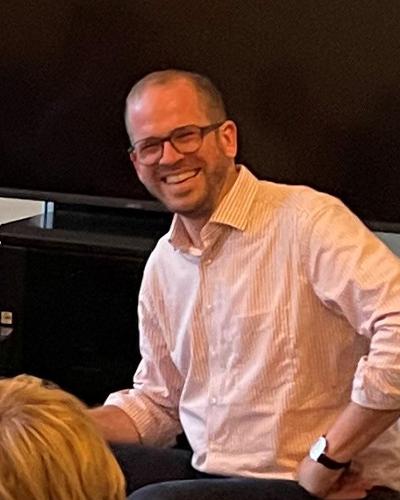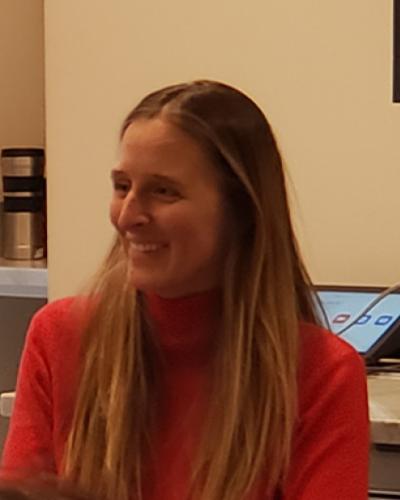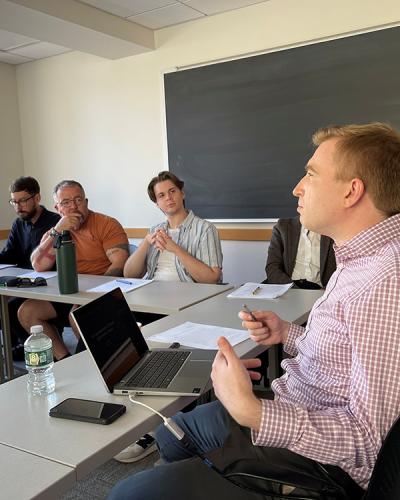On January 25th, 2019, Jette Gindner (Cornell University) opened IGCS’s Spring Colloquium Series with a paper titled: “Rethinking 1970s Political Modernism: Critical Reflexivity and the Feminization of Labor in Tatjana Turanskyj’s Eine Flexible Frau/A flexible Woman (2010).” By using the film by Turanskyj as a case study, Gindner analyzed job markets and labor conditions in the pressurized post-2008 context, arguing that the film rethinks 1970s feminist art cinema for a critical visual aesthetics after postmodernism. While the film has been read as a portrayal of current labor conditions for women, Gindner maintained that Turanskyj redeploys the formal device of critical reflexivity to create estranging perspectives on a “new normal” ––what Gindner described as the “feminization of labor, and ultimately the end of waged work in capital’s present, structural crises.” Drawing on her expertise in both economics and German Studies and working through Marxian critical perspectives that focus on post-socialism, deindustrialization, and issues of race and gender, Gindner’s research explores recent moments of economic crises: the post 1989 East Germany, the dotcom crash in 2000, and the lingering effects of the 2008 financial crisis. Gindner’s overall work contributes to scholarship on a variety of subjects, including visual aesthetics, Marxian criticism, and practices of material and aesthetic culture. The lively discussion her paper generated revolved around the film as a site for reflecting on questions of Marxism and aesthetic form, as well as visual aesthetics and gender. (Søren Larsen)
 Department Homepage
The College of Arts & Sciences
Department Homepage
The College of Arts & Sciences
Rethinking 1970s Political Modernism: Critical Reflexivity and the Feminization of Labor
